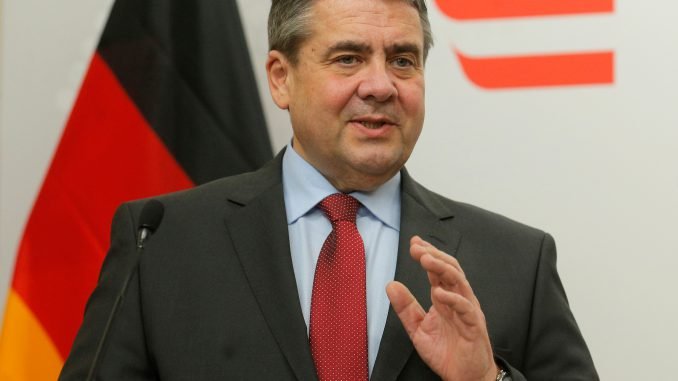
This gives us cause for celebration.
After 60 years of Europe, we are standing at a crossroads once again, however. The financial crisis and our efforts to deal with the refugee movements have ruthlessly exposed the weaknesses of the European integration project. The UK will provide notification of its desire to leave the European Union in a few days’ time. This is a wakeup call. We must reach an understanding on what Europe means to us, where we want to go with the Union and what we are prepared to do to achieve this.
This is the actual significance of this anniversary of the Treaties of Rome.
The European integration project is under greater attack today than at any time in the past, from within and from without, by populists who claim to have simple solutions and by autocrats who loathe our values. They are all out to dismantle or even destroy Europe.
For me, it is clear that the path of European integration is both the right and the only path to take. Let us not deceive ourselves. In this world stricken by crises in which so many certainties have fallen by the wayside, the countries of Europe can only successfully defend their interests and values when they speak with one voice. No European country, not even Germany, can do this on their own any more. Together, we are so much more and so much stronger than the sum of all of our individual nations. We must close ranks in order to do this.
This 60th anniversary must therefore stand as a beacon of hope and as a call to fight for Europe. We must not remain silent when voices clamour for an end to European integration.
Fighting for Europe means defending our common, i.e. our European, values. We want to make the EU, which has brought us decades of freedom and stability, fit for the future. The rule of law and democracy, solidarity with one another and diversity among our member states are the building blocks of the European project. We must stand up for this both on the international and domestic stage.
Fighting for Europe also means standing up for what we have accomplished. Dismantling our integration will not help us. We overcame the sovereign debt crisis together. We are working to ensure that everyone in the eurozone is able to look ahead with confidence, that there is a return to growth across the board and that new prospects are generated with more jobs. We will need to further deepen economic and monetary union to achieve this – not in order to set ourselves apart from the others, but because we are more closely linked than ever before thanks to our common currency.
Our work goes beyond this, however. The historic task that we now face is to create a better and stronger Europe. We must invest together in the European Union and make the most important project for peace and prosperity of our age fit for the future.
Firstly, in European foreign and security policy. It is time to do away with the perception that we are not responsible for our own security. It is true that Europe must finally come of age. Our partnership with the USA and NATO are the cornerstones of the transatlantic community. However, the European Union must be able to cope with crises and conflicts in its neighbourhood by itself. Initial steps have been taken and further measures must follow.
Secondly, we need protection of Europe’s external borders that is genuinely worthy of the name. Borders have lost much of their significance within Europe. That is an amazing achievement – but strong external borders are equally important. Amidst the crises in our neighbourhood and the refugee flows, we can see how important effective protection of our borders is. Anyone who holds Schengen dear must also value the protection of our external borders. While a number of measures have got off the ground, we must do more. This is a European task that applies to us all, and not to only those of us who are most affected.
Thirdly, Europe must raise its game with respect to domestic security. The fight against terrorism is a common effort. We must do better in this area, through improved cooperation and better communication. People in Europe should not have to live in fear – be it in Brussels, Paris, Berlin or elsewhere. Freedom and security are two sides of the same coin.
Fourthly, we must be far more mindful of the fact that part of the European project’s allure always was to do with the promise of prosperity. The single market brought prosperity to most of us, and over a long period of time. However, too many people in Europe feel that they no longer benefit from a common Europe, but have been left behind. We have to appreciate and take steps to counter this. For me, fighting for Europe therefore means strengthening the single market and taking the social dimension of the European project seriously. We need new conditions for growth and prosperity. This includes European investments in digital infrastructure, as well as in education and research. If we manage to deploy our resources better and, at the same time, if everyone is willing to tackle the necessary reforms to preserve their competitiveness, then we will not be net contributors and net recipients, but all net beneficiaries of Europe.
We want to stand together in order to send a message from Rome that we Europeans are getting our act together and standing up for Europe and that we want to do a better job! We will succeed if we do not allow ourselves to be guided by our fears and if we revitalise the European spirit with courage and self-confidence and if we take everyone on board and challenge certain national sensitivities.
Germany is prepared to do just that.

Be the first to comment